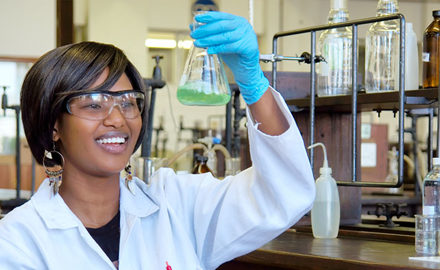Patient safety on the agenda
Supported by NHS England and NHS Improvement, the World Health Organisation (WHO) held the first World Patient Safety Day on 17 September 2019. WHO estimates that one in ten patients is harmed while receiving hospital care. To mark the day, the College launched its Patient Safety and Quality Strategy, as well as a new medical undergraduate pathology curriculum.
PATIENT SAFETY AND QUALITY STRATEGY
The College’s Patient Safety and Quality Strategy sets out our approach to the continual improvement of the safety of services and care that pathologists and their teams provide.
Three themes underpin the strategy:
- creating a patient safety culture
- continuous improvement
- encouraging the involvement of pathologists, patients, families and carers.
The strategy falls under the College’s strategic objective to promote excellence and advance knowledge in pathology practice.
'Patient safety is one of three components of quality in healthcare alongside clinical effectiveness and patient experience. It is a key priority for the College.
We must build safety into our daily practice, be supportive when mistakes happen and respond by learning, improving and sharing lessons.'
– Professor Jo Martin, President
MEDICAL UNDERGRADUATE PATHOLOGY CURRICULUM
The College’s new pathology curriculum has been developed to enable all medical undergraduates to gain a sound understanding of pathology. It is vital for ensuring patient safety that clinicians are able to request the right pathology test and interpret the results.
COLLEGE PATIENT SAFETY RESOURCES
The College produces a range of resources to support members in ensuring patient safety.
Our patient safety bulletins are designed to help pathologists learn from events in a quick and simple way to help keep patients safe. They bring together themes across specialties and services.
The College’s clinical guidelines and best practice recommendations support practitioners across all areas. We are also compiling a wide range of resources to further knowledge and learning about patient safety.
Medical Examiners
Medical examiners are part of a national network of specifically trained independent senior doctors (from any specialty). Overseen by a National Medical Examiner, they scrutinise all deaths that do not fall under the coroner’s jurisdiction across a local area. Introducing medical examiners is a vital step in the drive to improve patient safety in the NHS.





